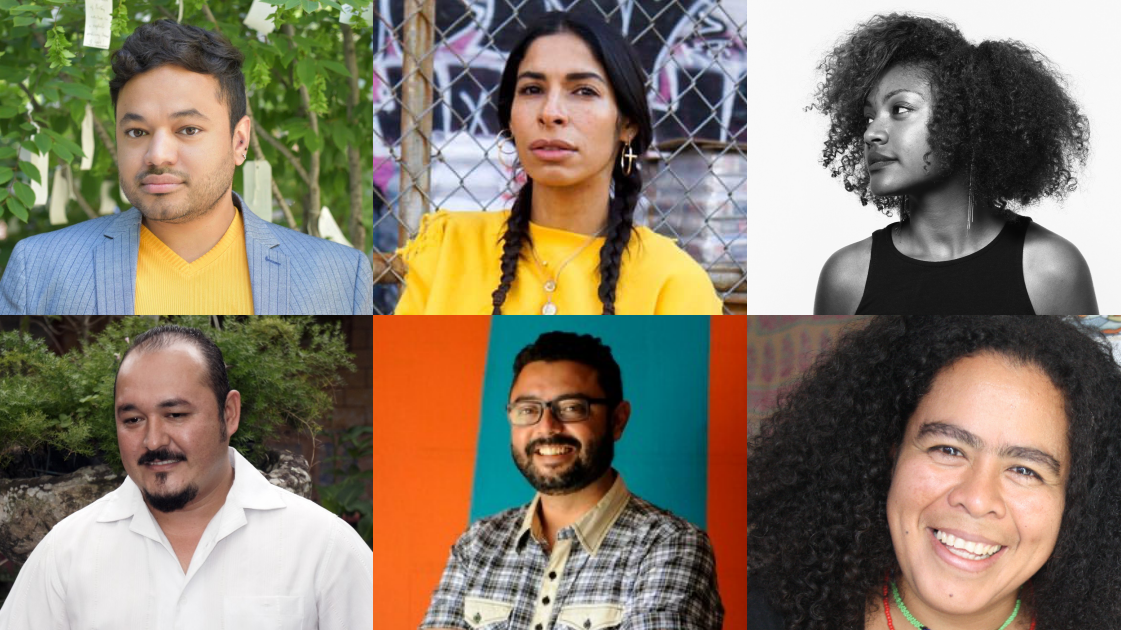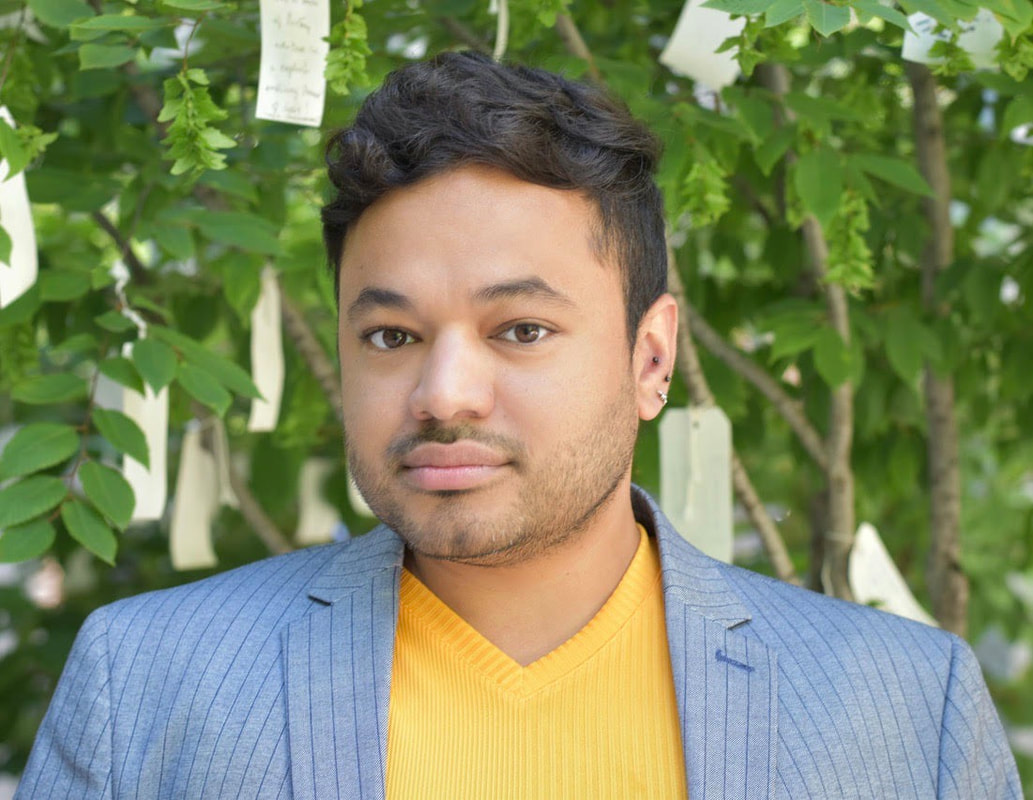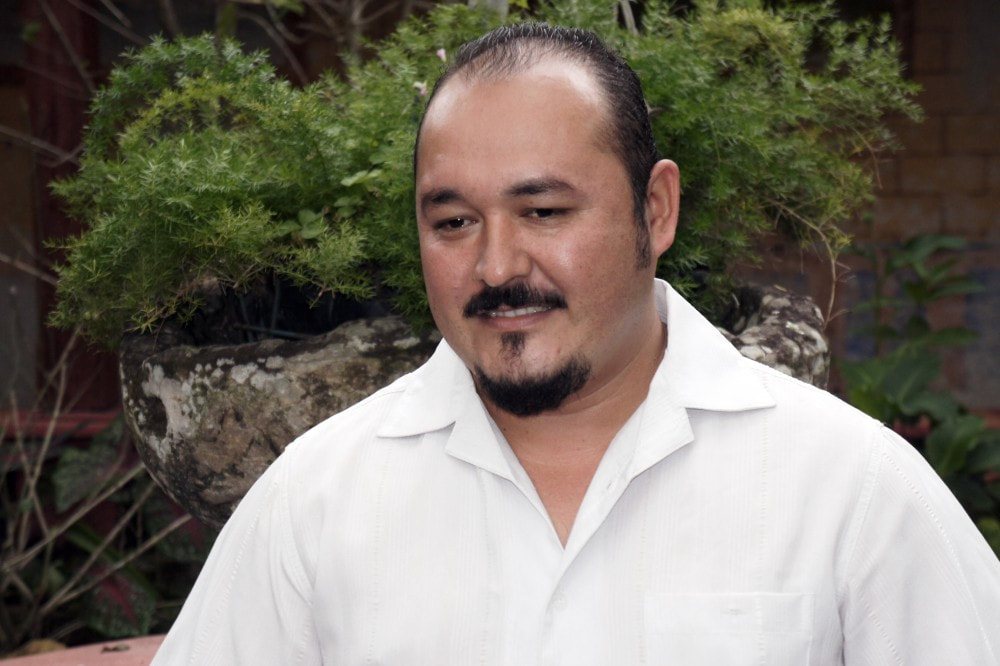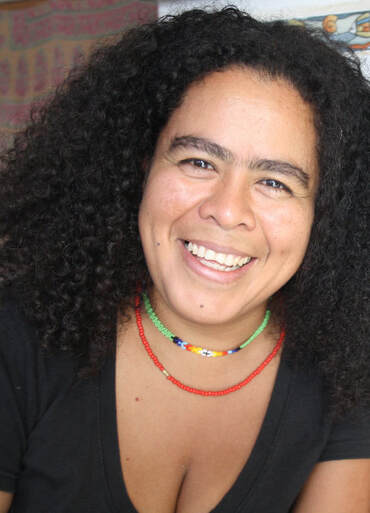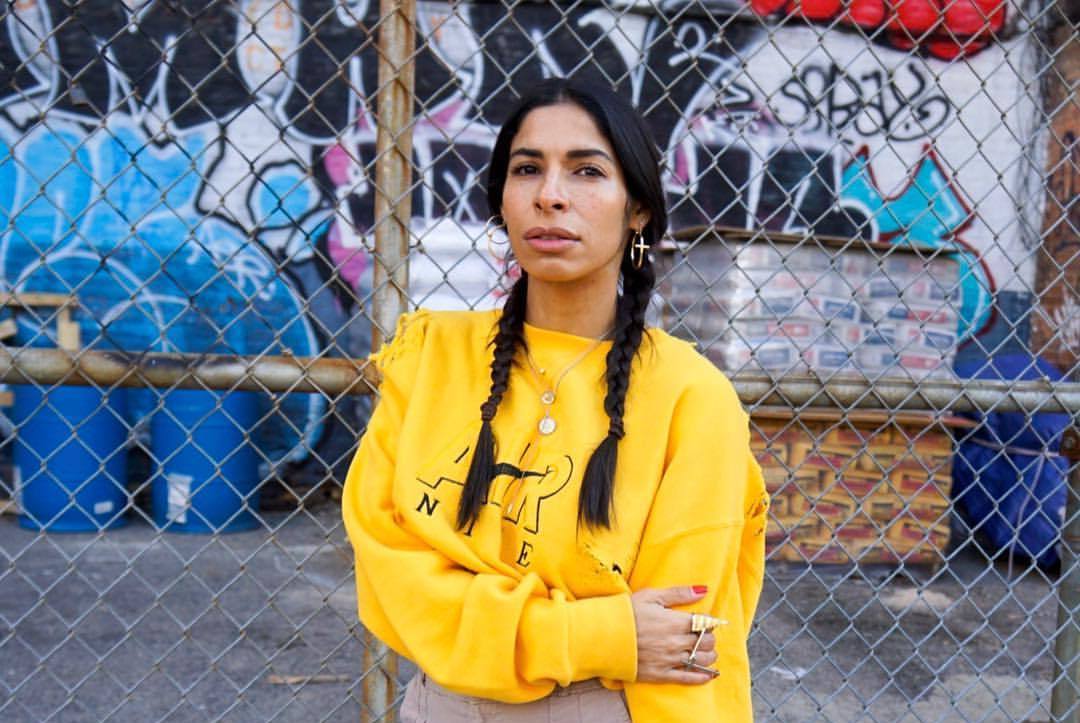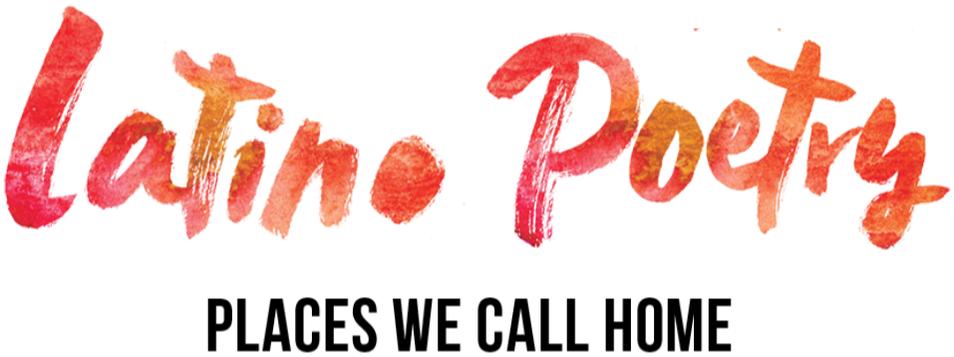6 Contemporary Honduran Authors You Should Know
|
Roy G. Guzmán (they/them) is a Honduran poet, educator, and activist. Raised in Miami, Florida, Guzmán is the co-editor of the anthology Pulse/Pulso: In Remembrance of Orlando (2018) – written in the weeks following the Pulse nightclub shooting in June 2016 – and author of the poetry collection Catrachos (2020). The recipient of a grant from the National Endowment for the Arts, a Ruth Lilly and Dorothy Sargent Rosenberg Poetry Fellowship, and a Scribe for Human Rights Fellowship, Guzmán currently lives in Minneapolis, where they are pursuing a PhD in Cultural Studies (Comparative Studies in Discourse and Society) at the University of Minnesota. |
|
Saraciea J. Fennell (she/her) is a writer, editor, and publicist who has worked with a host of award-winning and best-selling authors, such as Daniel José Older, Mark Oshiro, Bethany C. Morrow, Javaka Steptoe, and Deborah Wiles, among others. The founder of The Bronx is Reading—Bronx Book Festival, Fennell is the Board Chair and Social Media Director of Latinx in Publishing, as well as part of the Advisory Board of People of Color in Publishing. Her first anthology, Wild Tongues Can’t Be Tamed, is forthcoming from Flatiron Books in Fall 2021. She is currently pursuing an MFA at Lesley University. |
|
Salvador Madrid (he/him) is a poet, researcher, and art critic. Born in 1978, Madrid is the author of Visión de las cenizas (2004); La hora siguiente (2005), an anthology of contemporary Honduran poetry; Mientras la sombra (2015); Crónica de los despojos (2017); and Los trabajos del tiempo (2019). Founder of the publication Paíspoesible, as well as co-founder and current director of the Festival Internacional de Poesía Los Confines, Madrid contributes to Honduran newspaper El Heraldo, where he writes about art and literature. He is the recipient of various accolades, and his work has been translated into numerous languages, including English, French, and Portuguese. |
|
Melissa Cardoza (she/her) is a writer, journalist, and organizer whose work includes poetry, articles, short stories, and essays. She is most well-known for her works Tengo una tía que no es monjita (2004), a children’s book illustrated by Margarita Sada, and 13 Colores de la Resistencia Hondureña/13 Colors of the Honduran Resistance (2016), a collection of stories translated into English by Matt Ginsberg-Jaeckle. An Afro-Indigenous human rights activist who describes herself as a “GaríLenca,” Cardoza is one of the leading figures in the Honduran resistance movement, which emerged during the aftermath of the 2009 coup against President Manuel Zelaya. |
|
Fabricio Estrada (he/him) is a Honduran poet. His published works include Sextos de lluvia (1998), Solares (2004), Poesía: papel de oficio (2005), Imposible un ángel (2005), Poemas de Onda Corta (2009), Houdini vuelve a casa (2015), Blake muere en París a causa de un paparazzo (2018), Osos que regresan a la radioactiva soledad de Chernóbil (2019), and La era Pre Schumann (2021). Estrada has organized the cultural group Fábrica de Escándalos in Tegucigalpa, and in 2017 was conferred the Premio Nacional de Poesía Los Confines, one of Honduras’ most prestigious literary awards, for his book 33 revoluciones para Rodríguez (2018). |
|
Jessica Hoppe (she/her) is a Honduran-Ecuadorian writer and founder of @NuevaYorka, an online platform dedicated to wellness at the intersections of identity, culture, and politics. Her work has been featured in The New York Times, Vogue, Paper, Refinery 29, Luz Collective, PopSugar, and HuffPost, among others. Her nonfiction piece titled Cuídese: First-Generation Self-Care appears in Latino Book Review (Magazine Issue 2021). Hoppe is also a regular contributor to Sad Girls Club, a digital mental health resource for BIPOC women and femmes. A former alum of the Voices of Our Nations Arts Foundation’s multi-genre writing workshop, Hoppe is currently writing her first book of essays on the first-gen experience in America. She lives in New York City. |
|
4/2/2021
Comment Box is loading comments...
|
|

